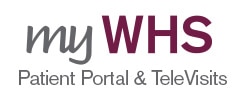Written by Emily King
Hypertension is one of the most common health problems for Americans—according to 2016 numbers, nearly a third of U.S. adults have high blood pressure. What is even worse is that only about half of those affected actually have the condition controlled. Now these numbers will increase as the American College of Cardiology and the American Heart Association have developed new blood pressure targets and treatment recommendations for 2017. Patients are now considered to have Stage I hypertension at a systolic blood pressure of 130-139mmHg or diastolic blood pressure of 80-89mmHg, which is a lower target than the previous guidelines.
We spoke with Benjamin Susco MD, FACC of Washington Health System Cardiovascular Care about how the changes in the hypertension guidelines will affect the general population. He also shared some of his recommendations for preventing and lowering high blood pressure.
“Hypertension, also known as high blood pressure, can be described as the pressure of blood being pumped through your arteries that is higher than it should be,” notes Dr. Susco. High blood pressure is dangerous because it increases your risk for several dangerous health issues. High blood pressure is a contributing factor of 70% of first heart attacks and 80% of first strokes. Seventy percent of people who are diagnosed with chronic heart failure have high blood pressure and kidney disease is also a major risk factor for high blood pressure.
“Some risk factors for developing hypertension include obesity, aging, diabetes, tobacco abuse, heavy caffeine usage, a sedentary lifestyle, emotional stress and a poor diet with high levels of sodium intake,” says Dr. Susco. Though some of these conditions are hard to control, you can take steps to prevent high blood pressure by stopping smoking, decreasing the amount of salt in your food, lowering your stress and your alcohol intake, and by living a healthier lifestyle that includes more
exercise.
The changes in the guidelines for defining and diagnosing high blood pressure aim to encourage people to take a more active role in lowering blood pressure earlier on. As more people are diagnosed with hypertension, healthcare providers will be able to make their patients more aware of their blood pressure and begin lifestyle modifications earlier on. Dr. Susco thinks the new rules will be beneficial to his patients. “This change in classification is beneficial because this starts by having the patient taken active role in changing their lifestyles, before medical therapy is needed.”
“A patient should consider seeing a physician if they have elevated blood pressure. By the new ACC/AHA 2017 guidelines, elevated systolic blood pressure is considered 120-129mmHg. Hypertension is now diagnosed when systolic blood pressure is greater than 130mmHg,” he says. These organizations recommend lifestyle changes and reassessment of blood pressure in 3-6 months after the initial diagnosis.
For most patients, the first line of treatment is to employ the lifestyle changes mentioned before. Most doctors will recommend a low sodium diet such as the DASH diet, which is rich in fruits, vegetables and grains. Increasing physical activity and decreasing alcohol consumption are healthy recommendations as well.
Of course, as is the case with many life-threatening conditions, medication may be necessary. Your doctor may prescribe medication if attempts at lowering blood pressure fail. Many health professionals are hopeful that by changing the guidelines for hypertension diagnosis, earlier intervention may reduce the need for eventual medication.
If you’re concerned about your blood pressure, you can speak with your Primary Care Provider (PCP) or make an appointment with a WHS Cardiologist. They see patients in four convenient locations, details below.
Additional Source:
https://www.cdc.gov/bloodpressure/facts.htm
If you need more information or would like to make an appointment, please call (724) 225-6500.
WHS Cardiovascular Care
Washington…………….125 N. Franklin Drive, Suite. 1
Cecil……………………………………3415 Millers Run Road
McMurray…………………..1001 Waterdam Plaza Drive
Waynesburg……………350 Bonar Avenue, 3rd Floor



